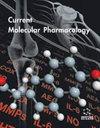Molecular Insight into the Apoptotic Mechanism of Cancer Cells: An Explicative Review
IF 2.9
4区 生物学
Q3 BIOCHEMISTRY & MOLECULAR BIOLOGY
引用次数: 0
Abstract
:: Mitosis of somatic cells produces a daughter cell. Apoptosis, a naturally programmed cellular death mechanism, kills abnormal cells produced by mitosis. Cancer can develop when this equilibrium is disrupted, either by an upsurge in cell propagation or a reduction in tissue demise. Cancer therapy aims to cause cancer cells to die while inflicting little harm to healthy cells. This review of apoptotic mechanism processes improves our understanding of how certain malignancies begin and develop. The current cancer treatments can operate either by inducing apoptosis or causing direct cell damage. An insight into the resistance to apoptosis may explicate why malignancy treatments fail in some situations. New therapies grounded on our understanding of apoptotic processes are being developed to induce apoptosis of cancer cells while limiting the simultaneous death of normal cells. Various biological activities require redox equilibrium to function properly. : Antineoplastic medications that cause oxidative stress by raising ROS and blocking antioxidant mechanisms have recently attracted much interest. The rapid accumulation of ROS impairs redox balance and damages cancer cells severely. Here, we discuss ROS-instigating malignancy therapy and the antineoplastic mechanism used by prooxidative drugs.癌细胞凋亡机制的分子洞察力:说明性综述
::体细胞有丝分裂产生子细胞。细胞凋亡是一种自然的程序性细胞死亡机制,可杀死有丝分裂产生的异常细胞。当这种平衡被打破时,无论是细胞繁殖增加还是组织死亡减少,都会导致癌症的发生。癌症治疗的目的是使癌细胞死亡,同时对健康细胞的伤害很小。通过对细胞凋亡机制过程的回顾,我们可以更好地了解某些恶性肿瘤是如何开始和发展的。目前的癌症疗法可以通过诱导细胞凋亡或直接损伤细胞来发挥作用。了解细胞凋亡的抗药性可以解释恶性肿瘤治疗在某些情况下失败的原因。我们正在根据对细胞凋亡过程的了解开发新的疗法,以诱导癌细胞凋亡,同时限制正常细胞的死亡。各种生物活动都需要氧化还原平衡才能正常进行:通过提高 ROS 和阻断抗氧化机制而导致氧化应激的抗肿瘤药物最近引起了广泛关注。ROS 的快速积累会破坏氧化还原平衡,严重损害癌细胞。在此,我们将讨论ROS诱导的恶性肿瘤治疗和促氧化药物的抗肿瘤机制。
本文章由计算机程序翻译,如有差异,请以英文原文为准。
求助全文
约1分钟内获得全文
求助全文
来源期刊

Current molecular pharmacology
Pharmacology, Toxicology and Pharmaceutics-Drug Discovery
CiteScore
4.90
自引率
3.70%
发文量
112
期刊介绍:
Current Molecular Pharmacology aims to publish the latest developments in cellular and molecular pharmacology with a major emphasis on the mechanism of action of novel drugs under development, innovative pharmacological technologies, cell signaling, transduction pathway analysis, genomics, proteomics, and metabonomics applications to drug action. An additional focus will be the way in which normal biological function is illuminated by knowledge of the action of drugs at the cellular and molecular level. The journal publishes full-length/mini reviews, original research articles and thematic issues on molecular pharmacology.
Current Molecular Pharmacology is an essential journal for every scientist who is involved in drug design and discovery, target identification, target validation, preclinical and clinical development of drugs therapeutically useful in human disease.
 求助内容:
求助内容: 应助结果提醒方式:
应助结果提醒方式:


